
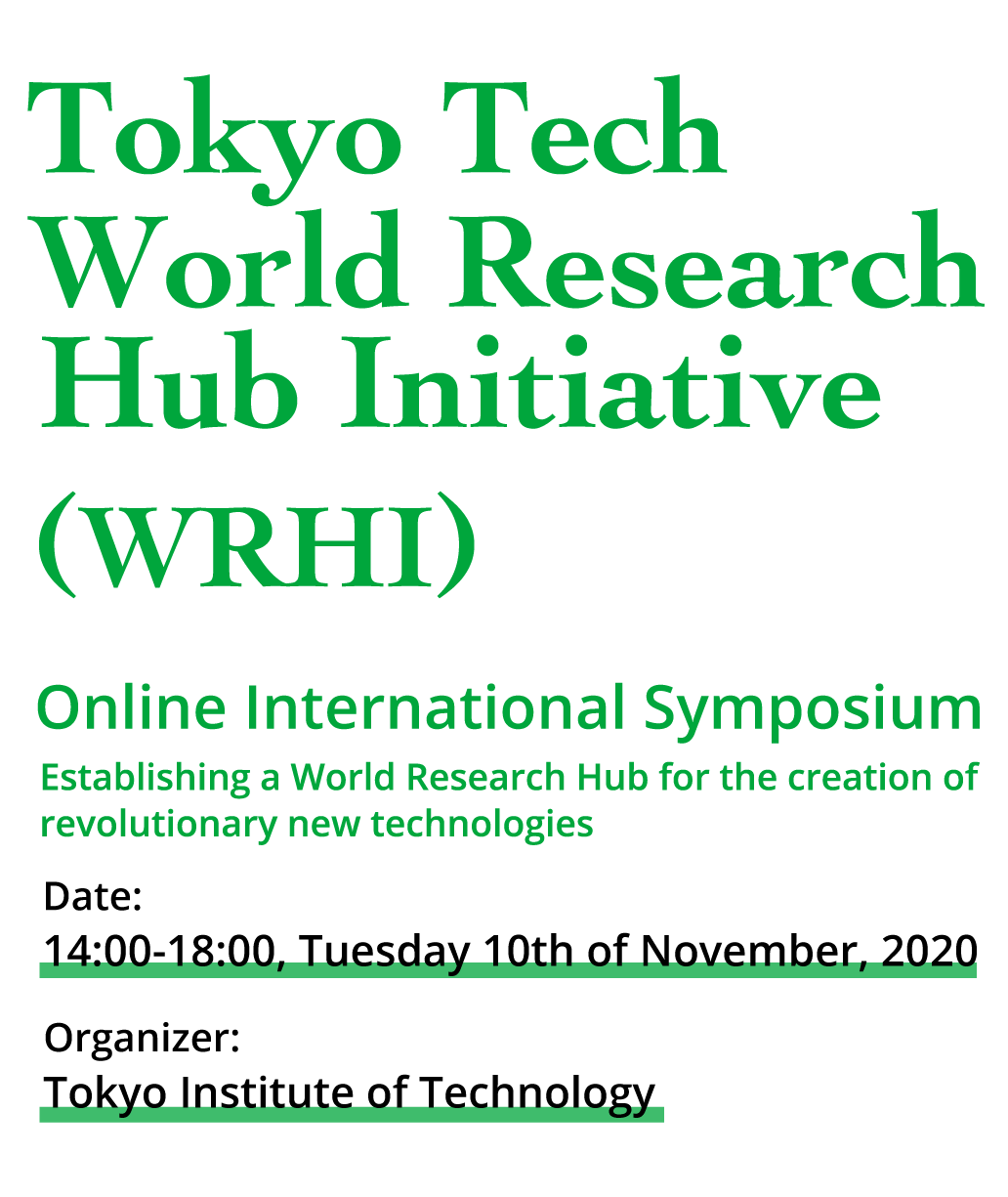
Purpose of the Symposium
The Tokyo Tech World Research Hub Initiative (WRHI) has been founded as part of the Institute for Innovative Research at Tokyo Tech. As part of our aim to establish an interdisciplinary ‘World Research Hub,’ the WRHI invites leading researchers from around the globe to conduct international collaborative research.
In this symposium, we will present the activities and achievements of the WRHI program over the four years since its inception. We will also discuss how the WRHI can continue to develop and support active and effective international research that addresses important social problems, such as the ongoing Covid-19 pandemic. We will hear about the International Joint Usage and Collaborative Research Center activities at Tohoku and Kyoto Universities, and will hold a panel discussion on how international collaboration can addresses the social needs of our age, with panelists including international researchers taking part in our program.
We hope you enjoy the 2020 Tokyo Tech WRHI International Symposium.
Outline
14:00-18:00, Tuesday 10th of November, 2020
Tokyo Institute of Technology
Online International Symposium
Hybrid held by Zoom
Registration
Disclaimer for online participation
* Please read carefully. By registering for this event, you shall be deemed to have agreed to the following conditions.
Participation requests and notes
Program
Master of Ceremony:
Alexander Ian May (Specially Appointed Assistant Professor, Cell Biology Center, Institute of Innovative Research, Tokyo Institute of Technology)
Panel members
Summary comments / Moderator
Biography
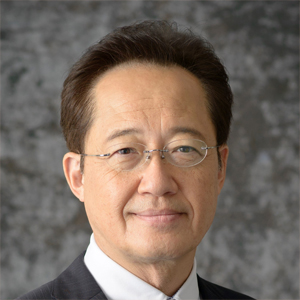
Dr. Kazuya Masu has been president of Tokyo Institute of Technology (Tokyo Tech) since April 2018. Pledging to instill a culture of innovative creation through a combination of autonomy and collaboration, Masu’s leadership is enhancing Tokyo Tech’s reputation as a world-class institution conducting education and research activities at the highest levels. After graduating from Tokyo Tech, Masu began his professional career as assistant professor at the Research Institute of Electrical Communication at Tohoku University, where he was soon promoted to associate professor. He returned to Tokyo Tech as professor and has been a key figure in the Institute’s research and education ever since. In 2016, Masu was appointed inaugural director-general of the newly-founded Institute of Innovative Research, an organization established to promote research in new and integrated fields as part of the university’s strategy to enhance its advanced research capabilities. In this role, he placed great emphasis on diversifying both the staff body and research approaches, making significant contributions to Tokyo Tech’s research profile. In research, Masu specializes in electronic devices, integrated circuits, and wireless sensor networks.
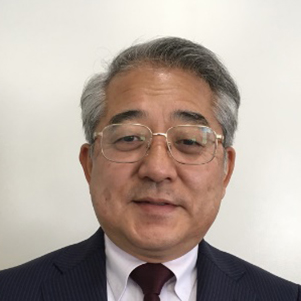
Mr. Sugino joined Ministry of Education, Science and Culture in 1984 after graduating from Faculty of Economics, Kyoto University. He served as Director of Scientific Research Aid Division, Research Promotion Bureau, Ministry of Education, Culture, Sports, Science and Technology (MEXT), Director of National University Corporation Support Division, Higher Education Bureau, MEXT, Director-General of Private Education Institution Department, Higher Education Bureau, MEXT, and Director-General of National Institute for Educational Policy Research among others. Since July 2020, he has served as Director-General, Research Promotion Bureau, MEXT.
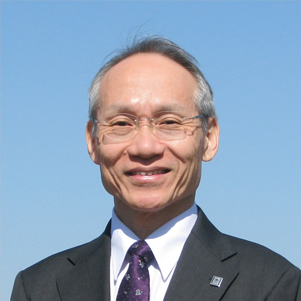
After serving as an assistant professor at Waseda University and Yokohama City University, Prof. Hisabori joined the Tokyo Institute of Technology as an associate professor, subsequently becoming a professor and Director of the Laboratory for Chemistry and Life Sciences. In 2020, he was appointed as Director-General of the Institute of Innovative Research (IIR). Prof. Hisabori places great value on the individuality of researchers and is active in the promotion of new research areas and interdisciplinary research. He supports the transition of the latest scientific understanding into the creation of valuable new technologies that address social and industrial issues, and also aims to continue developing the IIR into a world-leading center of innovation. In his own work, Prof. Hisabori specializes in functional biochemistry (bioenergetics).
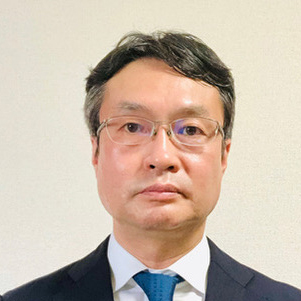
After obtaining his Ph.D. in science at Kyoto University, Dr. Azuma worked as an assistant professor and associate professor at Kyoto University, later becoming a full professor at the Tokyo Institute of Technology (Tokyo Tech) in 2010. Dr. Azuma’s group has pioneered new functional oxides, such as negative thermal expansion materials, that shrink when heated, lead-free piezoceranics that eliminate environmentally harmful lead, and multiferroic materials where both ferromagnetism and ferroelectricity coexist. In addition, Dr. Azuma’s research has used synchrotron X-rays and neutron to demonstrate slight changes in crystal structure that accompany the appearance of temperature- and pressure-triggered material functions, allowing for the description of a mechanism of functional acquisition. As chairman of the WRHI Steering Committee, he has played a key role in further establishing Tokyo Tech as a world research hub by promoting collaborative research through international and interdisciplinary exchange. His mission is drive innovation and the creation of new research areas, thereby helping to solve important problems facing human society while contributing to the development of future industrial infrastructure.
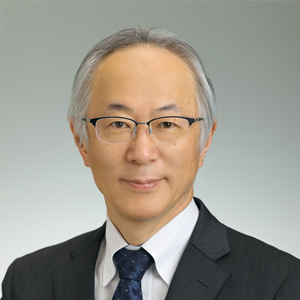
1989-1997 Research Associate, Dept. Metal Science & Technology, Kyoto Univ.1997-2005 Associate Professor, Dept. Materials Science & Engineering, Kyoto Univ.2005-present Professor, Institute for Materials Research (IMR), Tohoku Univ.2009-2014 Deputy Director, IMR, Tohoku Univ. 2014-2018 Head of Cooperative Research and Development Center for Advanced Materials, IMR, Tohoku Univ. 2018-2020 Deputy Director, IMR, Tohoku Univ. 2020-present Director, IMR, Tohoku Univ.
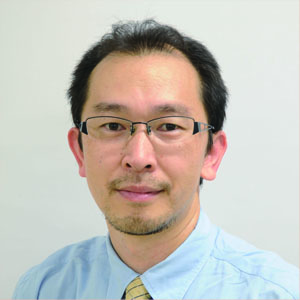
1994-2001Assistant Professor, School of Materials Science,Japan Advanced Institute of Science and Technology,2001-2004Associate Professor, School of Materials Science, Japan Advanced Institute of Science and Technology,2004-2011Professor, Department of Chemistry, University of Tsukuba,2011- Professor, Institute for Chemical Research (ICR), Kyoto University,2014-2017Emeritus Visiting Professor, Jinan University (China),2018- Specially Appointed Professor, Tokyo Institute of Technology,2016-2018Head of Collaborative Station, Joint Usage/Research Center, ICR,2018-Head of Collaborative Station, International Joint Usage/Research Center, ICR,2018-Associate Member, Science Council of Japan,2016-Vice President, The Society of Nano Science and Technology,2019-Associate Editor, Chemical Science (RSC)2019-Advisory Board, ChemNanoMat (Wiley VCH)
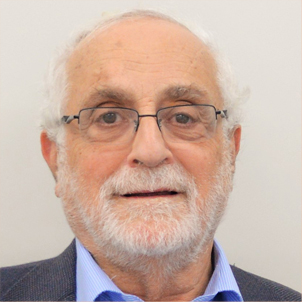
After initially working as a lecturer and later senior lecturer at Bar-Ilan University, in 1984 Dr Shlomo Havlin became a full professor at the university. He has been conducting research as a specially appointed professor at the Advanced Data Analysis and Modeling Unit, Tokyo Institute of Technology, since 2016. His research, based on theoretical physics, spans a broad range of topics, from basic research on the function of DNA sequences at the molecular level to the examination of social and economic networks and modelling of climate change at a global level. In 2018, he was awarded the Israel Prize, the most prestigious award in Israel, for his basic and applied research in statistical physics and complex networks. He is internationally recognized as a leading authority in complex network risk management and recently has made important contributions in COVID-19 related risk management research.

After serving as an assistant professor at Keio University and an associate professor at Future University Hakodate, Prof, Takayasu joined the Tokyo Institute of Technology as an associate professor, subsequently becoming a full professor. As a leader of the Advanced Data Analysis and Modeling Unit, she has assembled world-class researchers who utilize big data owned by public and private entities to conduct integrated analyses of everyday social phenomena from a scientific viewpoint. Based on these data, she is attempting to mathematically describe changes that occur in diverse social settings through econophysics, system sciences, modeling, optimization, and machine learning. In light of the ongoing COVID-19 crisis, she has recently devoted herself to the derivation of basic mathematical models to guide planning and strategies to balance infection prevention with economic considerations.
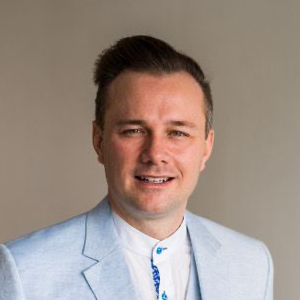
Dr. Pentelute initially served as an assistant professor at the Massachusetts Institute of Technology, where he was promoted to associate professor in 2016. Since 2019, he has been a specially appointed associate professor at Tokyo Institute of Technology. He is an up-and-coming researcher specializing in devices allowing efficient and selective protein modification, as well as peptide synthesis for the delivery of drugs to cells. He invented a fully automated high-speed flow machine that produces amide bonds thousands of times faster than commercially available instruments, and has achieved library synthesis of modified proteins for studying protein folding and function. His group is also active in the development of peptide macrocycle molecules that destroy cancer and therapeutic antibody complexes for the treatment of a range of diseases. He is currently collaborating with an interdisciplinary group of researchers at the WRHI Satellite Lab, aiming to develop materials that facilitate drug discovery.
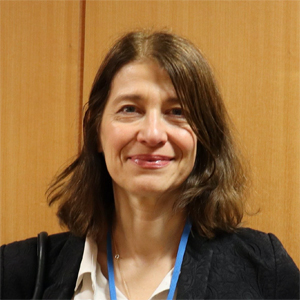
Dr. Zehnacker-Rentien was promoted to 1st Class Director at the CNRS (French National Centre for Scientific Research) in 2016. She was assigned as a specially appointed professor at the Laboratory of Chemistry and Life Sciences, Tokyo Tech, in 2019. Her research tackles the structure and dynamics of molecular clusters in supersonic molecular beams using laser spectroscopy, work that is highly regarded worldwide for her direct spectroscopic observation of chiral recognition in molecular clusters. At the WRHI Satellite Lab, she is deepening her international collaborative network through research employing advanced laser spectroscopes (including cooled ion trap spectroscopy) that allow for the clear visualization of intermolecular interactions. Through her collaboration with Tokyo Tech, she aims to uncover the molecular recognition mechanisms of biomolecules and supramolecules.

Dr. Osamu Watanabe has been executive vice president for research at Tokyo Institute of Technology (Tokyo Tech) since April 2018. He is also director of the Open Innovation Platform, an organization within Tokyo Tech that promotes joint research with industry, where he facilitates collaborative projects that encompass all stages of the research commercialization process, from new business development to social implementation. Prior to his current position, Watanabe was dean and professor at Tokyo Tech’s School of Computing. During his career, he also served as senior scientific research specialist at the Ministry of Education, Culture, Sports, Science and Technology, lecturer and associate professor at Tokyo Tech’s School of Engineering, and Ky Fan visiting associate professor at the University of California, Santa Barbara. Watanabe specializes in theoretical computer science (computational complexity theory, algorithm theory).

Before joining Tokyo Tech, Dr. Holme was a professor of Energy Science at Sungkyunkwan University, Korea, an associate professor of Physics at Umea University, Sweden, and an assistant professor of Computational Biology at Royal Institute of Technology, Sweden. His PhD is in theoretical physics from Umea University, Sweden. Since 2017, he has been a specially appointed professor at Biointerfaces Unit, Tokyo Institute of Technology. He is one of the central figures in the field of network science. In particular, he has pioneered the study of temporal networks—networks that captures changes in time. His research is interdisciplinary, and he collaborates with sociologists, biologists, economists, from all over the world. Currently he studies for example: how to optimally vaccinate a population facing an emerging disease outbreak, how to use the trajectories of car travel to understand the organizations of cities. He uses mathematics and computational methods for both simulation and data mining. The broader research interests of his lab include urban science, computational social science, game theory and graph theory. He has 150 publications and around 15,000 citations.

After working in Research and Development Center at Hitachi Medical Corporation and at Aichi Prefectural University as research associate, Dr. Suzuki moved to the U.S. to join the University of Chicago as a research associate, research instructor, research assistant professor, and assistant professor, and then the Illinois Institute of Technology as an associate professor. In 2018, he was recruited as a specially appointed professor in the Laboratory for Future Interdisciplinary Research of Science and Technology, Tokyo Institute of Technology. He has been engaged in research on machine/deep learning, computer-aided diagnosis, medical image processing/recognition, and artificial intelligence. His research results have been successfully commercialized (via FDA approval) and are currently installed in hospitals around the world. A notable achievement in his research career was to invent and develop a technique similar to deep learning 20 years ago, enabling medical image processing, identification of undetectable lesions, and improved the performance of computer-aided diagnosis systems that would not otherwise be achieved with conventional technology. His current work aims to develop new artificial intelligence models, such as "Explainable AI" and "Small Data AI” that allows for the derivation of AI from relatively small datasets. These technologies have exciting therapeutic implications, and their development and social integration is being coordinated in NEDO and JST research projects.
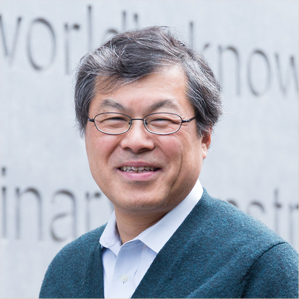
Dr. Fujii initially served as an assistant professor at Tohoku University, followed by appointments to Cornell University (visiting scientist under the US-Japan Collaboration on Solar Energy Transfer Program), Waseda University (associate professor), and the Laser Research Center for Molecular Science at the Institute of Molecular Science (Director and full professor). He was subsequently appointed as a full professor at the Tokyo Institute of Technology in 2003, where he continues his research activities. He studies the structure and dynamics of molecules and molecular aggregates (molecular clusters) by developing and applying novel multicolor laser spectroscopy techniques. He is particularly noted for the development of UV-IR-UV three color picosecond time-resolved IR spectroscopy, which enables researchers to observe solvent rearrangement reactions and excited state hydrogen transfers in real-time at the molecular level, for which he was awarded a Humboldt Research Award in 2019. At the WRHI, He leads an international team of world-leading researchers from the USA, France, Germany and Japan collaborating on molecular spectroscopy, excited state dynamics, molecular clusters, quantum chemistry molecular dynamics, peptide chemistry and supramolecular chemistry. His group aims to reveal the molecular recognition mechanism of biomolecules and functional supramolecules in the context of intermolecular interactions.
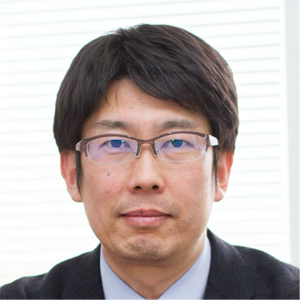
After obtaining his Ph.D. in science at Osaka University, Dr. Ueno worked as an assistant professor at Institute for Molecular Science and subsequently Nagoya University. He joined Kyoto University as an associate professor, and later became a full professor at the Tokyo Institute of Technology in 2012. Dr. Ueno’s research group focuses on chemical reactions of inorganic materials functionalized in biological systems and the construction of hybrid materials of biomolecules and inorganic compounds for catalysis applications. His group has recently been developing sustainable biomaterials using protein self-assembly systems, as well as investigating the mechanism of this process using crystal structure analysis, high-speed atomic force microscopy, and molecular dynamics. As leader of the WRHI Satellite Lab for innovative synthetic biology, he is central in the further development of new areas of interdisciplinary research and facilitation of international collaborative research into the future.

After earning a degree from the University of Calcutta and having served as a postdoctoral fellow at Cornell University, University of California, Berkeley and Massachusetts Institute of Technology in the United States, she became a research scientist at Cornell University in 2017. She has been conducting research as a specially appointed associate professor at the Laboratory for Materials and Structures, Tokyo Institute of Technology since 2018. As a PI of WRHI, she aims to develop a comprehensive description of quantum phenomena, such as superconductivity, ferromagnetism, ferroelectricity, magnetoelectric effect, ionic transport and semimetals, in real materials at the fundamental level of atoms and electrons. She is promoting international collaborative research to unravel the complex correlation between material chemistry, crystal structure, and quantum phenomena in solids. She is highly recognized worldwide for theoretical research on multiferroic and magnetic phenomena.